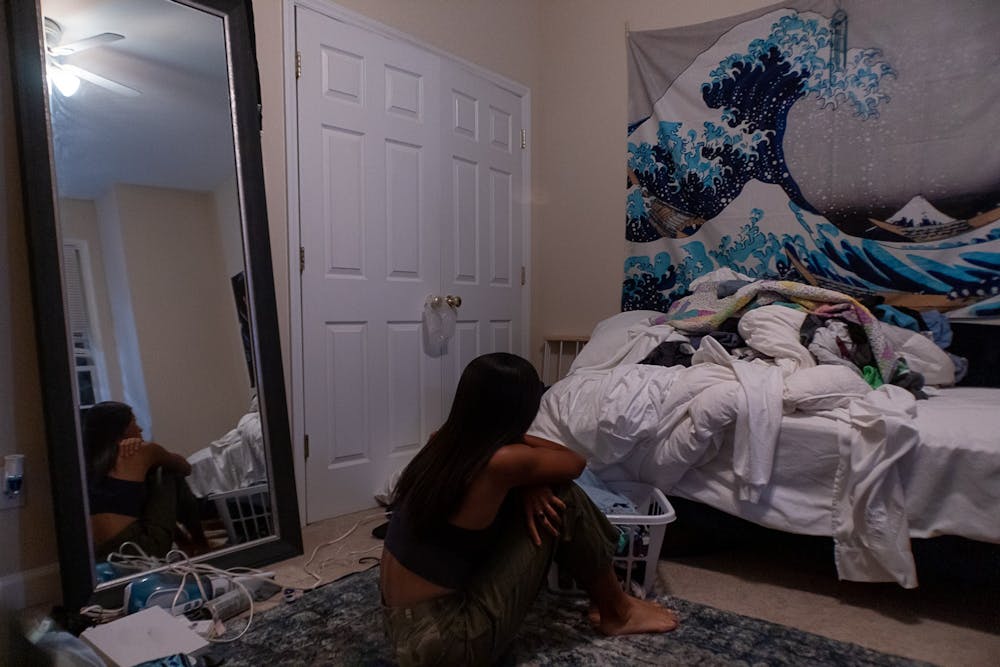The truth is that OCD is about more than just vacuuming twice a week or folding your laundry a certain way. In fact, the reality is far from that. Although the symptoms manifest differently for each person, OCD is a highly pervasive and debilitating disorder that has affected 1.2 percent of U.S. adults in the last year, according to the Anxiety & Depression Association of America.
Here is a glimpse of what it is like to live with OCD.
As a child, my nighttime routine involved obsessively knocking on each crevice of my bedroom walls and rearranging every single knick-knack I owned until sleep deprivation would eventually overpower my urge to act on these compulsions.
My symptoms evolved over time.
In middle school, one of the “popular” boys called me fat in front of the entire grade. I began working out every single day after school for up to three hours. I scanned the backs of boxes for calories and I asked my mother to provide a detailed list of every single ingredient she put in breakfast, lunch and dinner. (Being Italian-American, she didn’t condone my obsession with monitoring what I ate, but she gave into my insistence, nonetheless.)
I experience many of these compulsions to this day. Even now, I dread uncertainty and crave reassurance. My friends and family will tell you I tend to ask the same question ten, fifteen, even twenty times, despite already knowing the answer.
I went undiagnosed until this summer. When my therapist told me I had OCD, I felt a combination of relief and empowerment. The disorder had dictated so much of my life, and now I had the power to change that.
I spent the next few sessions inundating my therapist with questions about OCD. The truth was that I held many misconceptions about the disorder and as a result knew very little about it.
I blame my ignorance on the fact that many of my peers tended to “gatekeep” mental illnesses symptoms or simply mischaracterize them as personality "quirks”: the tidiness, the causal germaphobia, etc.
“Some people like to say they have OCD, but it’s not about perfectionism,'' UNC Health psychiatrist Jim Bedford, MD, said in an article by UNC Health Talk. “It’s also not an overreaction to everyday stress.”
This is especially true for college students struggling with anxiety disorders. It’s difficult to feel as if your reactions to life’s happenings – from the mundane stress of completing your courses to the jarring readjustment that comes with moving away from home and re-establishing yourself elsewhere – are justified.
My illness tells me to keep a routine. Monitor the ingredients in what I eat. Listen to compulsions when they arise. The uncertainty of college life makes abiding by the arbitrary rules of my illness even more difficult, yet doubly as important.
To get the day's news and headlines in your inbox each morning, sign up for our email newsletters.
Although conversation can be used as a tool to de-stigmatize taboo subjects, the misclassification of normal behavior patterns as mental illness only minimizes the experiences of those who actually struggle with these disorders.
It’s time for meaningful conversations around mental health that take into account the severity and pervasiveness of anxiety disorders. It’s time to stop reducing OCD to simple personality traits and reduce the stigma around those struggling with compulsions.
@GeorgiaRoda404
opinion@dailytarheel.com



